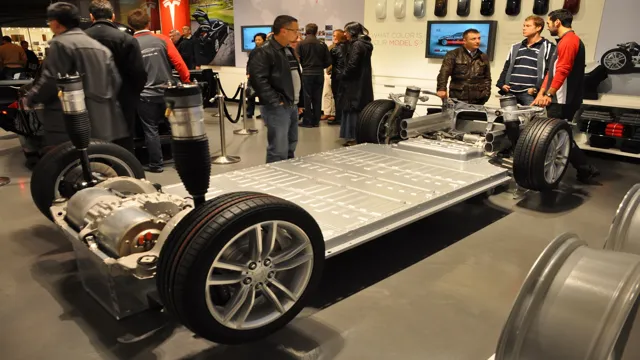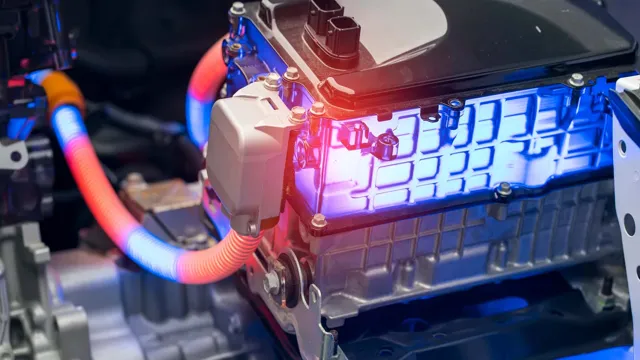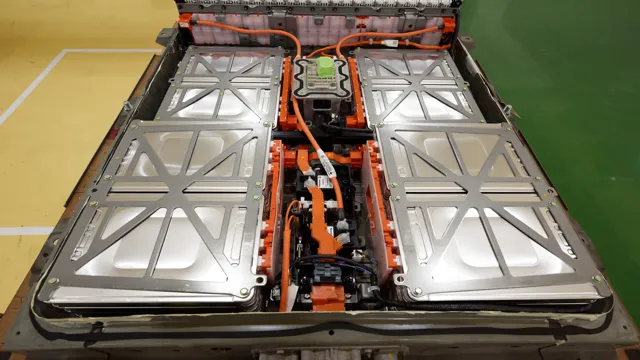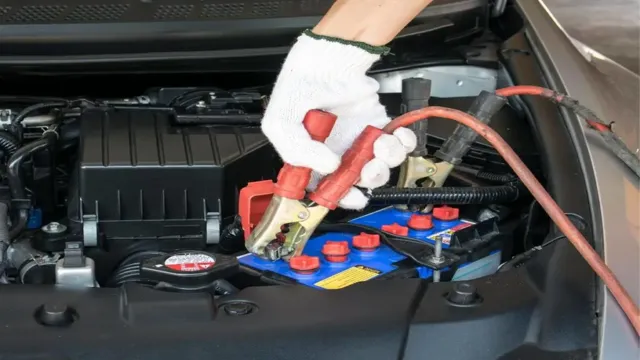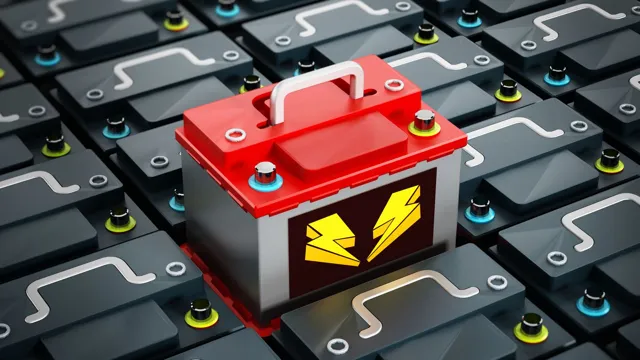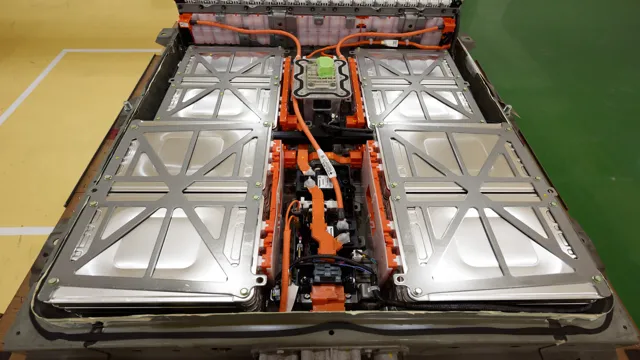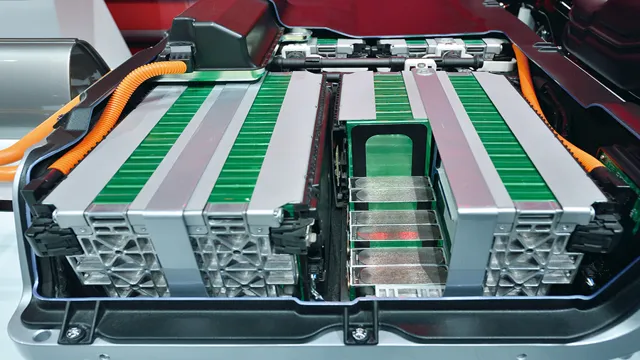The Shocking Truth About Electric Car Battery Pack Cost: What You Need to Know!
Electric cars are becoming increasingly popular as more people switch to more environmentally friendly modes of transportation. However, one of the biggest concerns when it comes to electric cars is the cost of the battery pack. The battery pack is arguably the most important component of the vehicle, as it powers the motor and keeps the car moving.
But how much does an electric car battery pack actually cost? Well, the answer is not so straightforward. The cost of an electric car battery pack can vary widely depending on several factors, including the type of car, the size of the battery pack, and the manufacturer.
Overview
When it comes to electric cars, one of the most significant factors affecting their cost is the battery pack. The battery pack is the most expensive component in an EV, and it accounts for a considerable portion of the car’s overall price. Several factors can influence the cost of an electric car battery pack, such as the type of battery technology, its capacity, and the manufacturer’s production methods.
Typically, the price of a standard EV battery pack ranges from $5,000 to $30,000, depending on these factors. However, recent technological advancements and growing competition in the EV market have made electric car batteries more affordable and accessible to consumers. As a result, analysts predict that the cost of EV batteries will continue to decline, making electric cars more competitive with traditional vehicles in terms of price and performance.
What factors affect the cost of an electric car battery pack?
Electric car battery packs are the backbone of EVs and play a vital role in their overall performance. The cost of an electric car battery pack is a significant factor when deciding whether to purchase an electric vehicle. Several factors affect the cost of an electric car battery pack.
The most crucial factor is the size of the battery pack, which depends on the electric vehicle’s range requirements. The battery pack’s chemistry can also affect its cost; lithium-ion batteries are the most popular battery chemistry because of their high energy density and lower cost compared to other types of batteries. Additionally, the manufacturing process of the battery pack can impact its cost; the production cost of the battery pack decreases with economies of scale.
Battery manufacturers’ research and development costs and the cost of sourcing materials also affect the battery pack’s overall cost. Ultimately, the cost of an electric car battery pack is an essential factor to consider when purchasing an EV, but advancements in technology and economies of scale are leading to significant cost reductions over time.
How does the cost of an electric car battery compare to a traditional car’s gas tank fill-up?
Electric car batteries and traditional gas tanks are often compared when it comes to cost. While the upfront cost of an electric car battery may be higher, the cost of filling up a gas tank repeatedly over time surpasses the cost of recharging an electric car battery. The cost of an electric car battery varies depending on the make and model, but it can range anywhere from $5,000 to $16,000.
On the other hand, a traditional car’s gas tank fill-up usually costs around $45 to $75, depending on the size of the tank and the current gas prices. However, a full electric car battery can typically travel up to 300 miles on a single charge, while a full gas tank’s range can vary from 200-400 miles depending on the car’s make and model. Despite the higher upfront cost, electric cars can save drivers money in the long run, especially as the cost of electricity continues to decrease.
Average Cost of Electric Car Battery Packs
Electric car battery pack cost has been a trending topic for many years now. The average cost of a battery pack is a crucial factor that most car buyers consider before purchasing an electric vehicle. According to recent surveys, the cost of a battery pack has significantly decreased over the years.
In 2010, the average cost per kilowatt-hour of lithium-ion batteries for electric cars was around $1000. By 2019, the cost had dropped to $156 per kWh. This decline in price can be attributed to advancements in technology, improved production efficiency, and economies of scale.
With the ongoing development of batteries, it is predicted that the cost will continue to decrease, making electric cars accessible to a wider range of drivers.
What is the current average cost of an electric car battery pack?
The average cost of an electric car battery pack has decreased significantly in recent years. According to a report by BloombergNEF, the price of lithium-ion batteries has fallen by 87% since 20 In 2020, the average cost of a battery pack for an electric car was around $137 per kilowatt-hour (kWh).
This is down from $1,100 per kWh in 20 The decreasing costs of battery packs have made electric vehicles more affordable and accessible for consumers. Battery packs are the most expensive component of an electric car, so reducing their costs is crucial for the widespread adoption of electric vehicles.
As battery technology continues to improve, it is expected that prices will continue to decrease. The mass production of electric vehicles, along with advancements in battery chemistry and manufacturing, are helping to drive down costs. As a result, we can expect to see more affordable electric vehicles hitting the market in the coming years.
How have electric car battery pack costs changed over time?
The average cost of electric car battery packs has significantly decreased over the years, making electric cars more accessible to consumers. In 2010, the average cost per kilowatt-hour (kWh) of a battery pack was around $1,100. Fast forward to 2020, and the cost has decreased to around $137 per kWh.
This is a staggering 87% decrease in the cost of battery packs over the past decade. The advancements in technology have played a significant role in reducing the cost of battery packs. The manufacturing processes have become more efficient, while the materials used in the batteries have become cheaper.
In addition, the increase in demand for electric vehicles has led to economies of scale, further reducing battery pack costs. The decrease in cost has allowed automakers to produce electric cars that are more affordable and provide higher ranges. As battery technology continues to improve, the cost of battery packs is expected to decrease further, making electric cars even more accessible in the future.
Brand Comparison
Electric car battery pack cost is a crucial consideration for many people looking to purchase an electric vehicle. When it comes to comparing different brands, there are a few factors to consider. One of the most important is the size of the battery pack, as this has a significant impact on the overall cost.
Tesla is often seen as the leader in electric car technology, with their vehicles boasting some of the largest battery packs on the market. While this may make their cars more expensive upfront, it also means that they have a longer range and may offer better overall value over time. Other brands, like Nissan and Chevrolet, offer smaller battery packs but may be more affordable upfront.
Ultimately, the cost of an electric car battery pack will vary depending on the brand and the specific model, so it’s important to do your research and compare your options carefully.
Which brands have the most affordable electric car battery packs?
When it comes to affordability, some brands stand out in the electric car market. Tesla, for example, has long been known for its industry-leading battery technology, but it also comes with a hefty price tag. On the other hand, Nissan has made a name for itself with lower-priced electric vehicles, such as the Nissan Leaf.
Similarly, Hyundai has entered the market with its Kona Electric, which boasts 258 miles of range at a competitive price. Chevrolet’s Bolt EV also offers a relatively affordable electric car option with a range of 259 miles. Overall, while electric cars have traditionally been more expensive than their gas counterparts, the latest models from these brands offer more affordable options for those looking to switch to electric.
Which brands have the most expensive electric car battery packs?
When it comes to electric car battery packs, some brands have certainly invested more into research and development than others, resulting in a higher price tag. At the top of the list is Tesla, whose Model S battery pack comes in at a whopping $15,000. However, it’s important to note that this battery is larger and more powerful than most, providing a range of up to 402 miles.
Other brands with expensive electric car battery packs include Porsche, whose Taycan battery pack costs around $23,000 due to its cutting-edge technology. Audi’s e-tron SUV also has a costly battery pack at around $15,000, while Jaguar’s I-PACE comes in at around $13,000. While a high-priced battery may seem daunting, it’s important to consider the long-term cost savings of electric vehicles, as they typically require less maintenance and have lower fuel costs compared to gasoline-powered cars.
Future Predictions
If you’re considering buying an electric car, you’re probably wondering about the battery pack cost. The good news is that the cost of electric car batteries is declining rapidly. In fact, some analysts predict that the cost of battery packs will be almost 70% lower in 2030 than they were in 201
This is largely due to technological advancements and economies of scale, as more and more electric cars hit the market. As battery costs continue to fall, electric cars will become more affordable for the average consumer. And as more people switch to electric cars, the demand for oil will decline, ultimately resulting in a cleaner, more sustainable future.
So, if you’re thinking about going electric, now is a great time to make the switch. Not only will you be doing your part for the environment, but you’ll also be saving money in the long run.
What do experts predict for the future of electric car battery pack costs?
Experts in the automotive industry predict that the cost of electric car battery packs will continue to decrease in the coming years. In fact, some speculate that the cost could drop by as much as 50% over the next decade. This is due to advancements in battery technology, increased production, and economies of scale.
As more people adopt electric vehicles, battery production will continue to rise, driving down costs. Furthermore, several major automakers are investing billions in research and development of new battery technologies that are expected to further reduce prices. With lower battery pack costs, electric cars will become more affordable for the average consumer and compete more effectively with traditional gasoline-powered vehicles.
As the shift to electric vehicles gains momentum, we can expect to see continued advancements in battery technology and overall cost reductions.
How will advancements in technology affect electric car battery pack costs?
As technology rapidly advances, it’s likely that electric car battery pack costs will decrease in the future. With the development of more efficient and cost-effective materials, such as silicon and graphene, it’s possible that batteries may become smaller, lighter, and more durable. Additionally, advancements in recycling and manufacturing processes could also reduce costs by making battery production more sustainable and economical.
As battery range improves, demand for electric vehicles is expected to rise, leading to economies of scale and further cost reductions. It’s also possible that new technologies, such as solid-state batteries, may replace traditional lithium-ion batteries, offering even greater performance and affordability. All in all, the future looks promising for electric car battery pack costs, as advancements in technology are likely to drive prices down and make sustainable transportation more accessible to everyone.
Conclusion
In conclusion, the cost of a battery pack for an electric car may seem shocking at first, but it’s important to keep in mind the long-term benefits. Sure, the initial investment may be pricier, but with lower maintenance and operating costs, as well as reduced emissions and carbon footprint, the investment in electric car battery technology is a charge worth taking. So let’s rev up and spark the electric vehicle revolution!”
FAQs
What is the average cost of an electric car battery pack?
The average cost of an electric car battery pack is around $5,500 to $7,000.
How long do electric car battery packs last?
Electric car battery packs can last between 8 to 10 years or up to 200,000 miles before needing a replacement.
Can the cost of replacing an electric car battery pack be financed?
Yes, some manufacturers offer financing options for the replacement of an electric car battery pack.
How does the cost of an electric car battery pack compare to the cost of traditional car maintenance?
Electric car battery pack replacements can be more expensive than traditional car maintenance but overall electric cars require less maintenance which can offset the cost.
